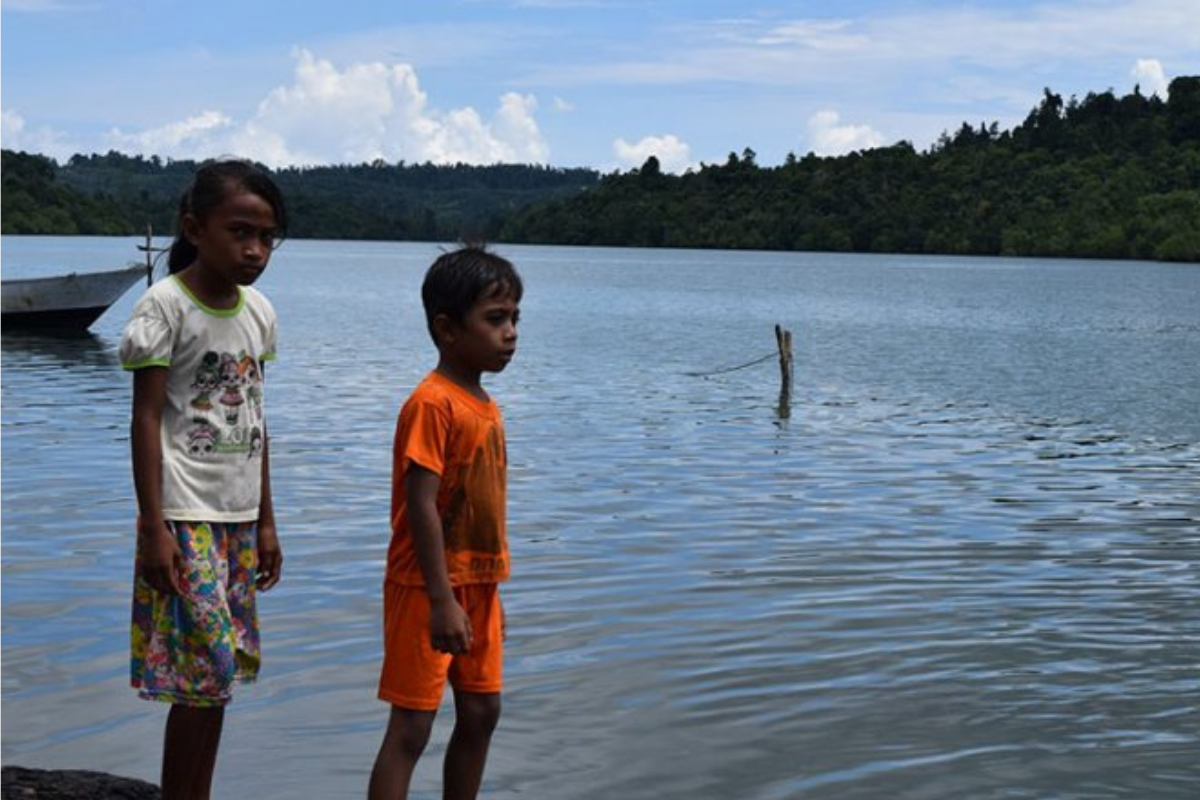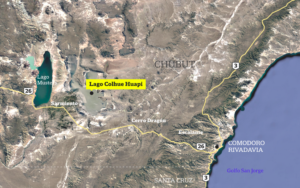“All types of fish are here in Sali. Hence, all fishermen from Ternate, from Bacan, come here, because here you can say it is like a fish center.”
At first glance, a small island of Sali Kecil, located between Bacan Island on the west side and Halmahera Island in the east, does not look any different from the other coastal villages.
However, once we first set foot on a wooden pier that is also the main gate of Sali Kecil Village in North Maluku Province, its beauty and uniqueness will be revealed.
As we walk slowly on the wooden pier approaching the gate, colorful small fishes swimming swiftly along the sidelines of the coral reefs greet us.
The seawater is so clear that the tropical fish cannot escape our sight. Far behind the village gate and residential area, a stretch of forest can be seen along with the faint sounds of birds audible from a distance.
However, Ibrahim Nasir, a Sali Kecil Village resident, who participated in receiving ANTARA and others partaking in the Maluku EcoNusa Expedition last October, stated that the healthy coral reefs and the variety of tropical fish swimming around them are not something unique to them.
It is part of the villagers’ increasing awareness to protect the environment and to reduce waste in their waters in accordance with the local government’s recommendations.
The local fisheries office had urged villagers to protect Sali Kecil Island’s coral reefs, as they hold vast potential.
The beauty of Sali Kecil Island is alluring. It is not surprising if four-star resorts also operate there, as the islands there are included as an underwater paradise for divers.
“There are people, who are already aware of that (potential). Hence, we take care of each other,” Ibrahim, who works as a fisherman, stated.
Not only are they striving to reduce waste dumped into the sea, but the villagers have also begun prohibiting the use of fishing gear, such as bombs and fishing trawlers, that can damage coral reefs.
However, Ibrahim believes that the people’s awareness to protect their environment did not come instantly but involved a long process.
“In the past, many fishermen used trawlers to catch fish, but now, many local fishermen have begun abandoning this environmentally unfriendly practice,” Ibrahim noted.
As a result, Sali Kecil’s marine wealth has been preserved and has also become a blessing for other fishermen from around the island.
“All types of fish are here in Sali. Hence, all fishermen from Ternate, from Bacan, come here, because here you can say it is like a fish center. We have many types of fish here,” Ibrahim stated.
In order to support sustainable fishing, Ibrahim explained that local fishermen have their own plans of sea fishing. They usually fish at a specified location for twice a month before moving to another location to follow the same pattern.
Green forest
Sali Kecil Island not only consists of sea but also green forests that are home to wild birds and deer that have co-existed with the people since long.
The sight of deer descending to the coast and drinking seawater before sunset is not unusual for the residents of Sali Kecil Village. However, it is a special experience for those who have just visited the island.
Local villagers still hunt deer, but usually, they seek permission from elders of the village, as they believe it would be easier to find prey.
However, now, the position of the community elders in Sali Kecil lies vacant. Ibrahim noted that in exchange, they sought permission from the guardian of the sacred tomb, which the villagers believed was the final resting place for their ancestors, thought to have come from Tidore.
Not only that, the community also limits the land cleared for plantations. There are several parts of the forest in Sali Kecil that cannot be used as plantations for planting coconut, which is the main commodity for producing copra.
According to Ibrahim, the restriction was applied since vast acres of land were cleared by the previous generation, and it can still be used today.
Limitations
Natural resources and ecosystems still being maintained is certainly a blessing for the people of Sali Kecil Village. It is the source of their well-being.
However, akin to other small villages in Indonesia, although they are rich in natural resources and their ecosystem is still preserved, they still await help from the government to lead a safe and peaceful life.
Limited transportation at that location creates difficulties for the people living there. One of the problems that arise is when the community experiences acute health problems, while Sali Kecil has only one health worker serving as a midwife.
In fact, villagers often need urgent medical assistance. To avail health services, they have to cross the sea by boat to the nearest big island, Bacan Island.
Hamid Baca, one of the community leaders in Sali Kecil, stated that when a villager has to give birth in the middle of the night, they have to bring a ketinting, or a kind of small boat, to Bacan. Sometimes, the midwife had to bring the patient to East Bacan Sub-district on her boat, which was actually faster than the other residents.
“We were forced to leave in a small boat,” Hamid stated.
In fact, getting to Bacan aboard a ketinting takes about three hours. Meanwhile, using a fast boat takes up to an hour, Hamid noted.
School children there also face the problem of transportation. With only one elementary school in Sali Kecil, children of the village have to cross the sea to receive higher education.
The elementary school building on the island is still under repair after being damaged by the earthquake that rocked the South Halmahera area in 2019.
Despite some parts of the school building being dilapidated, the teachers there decided to conduct face-to-face teaching and learning activities, as the small island is included in the COVID-19 green zone in South Halmahera Regency.
“We, who live in these remote islands, face some difficulties to reach the regency, which located far away. Hence, we need the government’s assistance to manage social services here, especially for healthcare facilities,” Hamid expounded.
In the wake of such problems and difficulties, Hamid is optimistic that the message from small islands, such as Sali Kecil, can be conveyed to the relevant authorities to help those who survive to protect nature in the midst of limitations.
This story, originally published by ANTARA News, has been shared as part of World News Day 2021, a global campaign to highlight the critical role of fact-based journalism in providing trustworthy news and information in service of humanity. #JournalismMatters.




